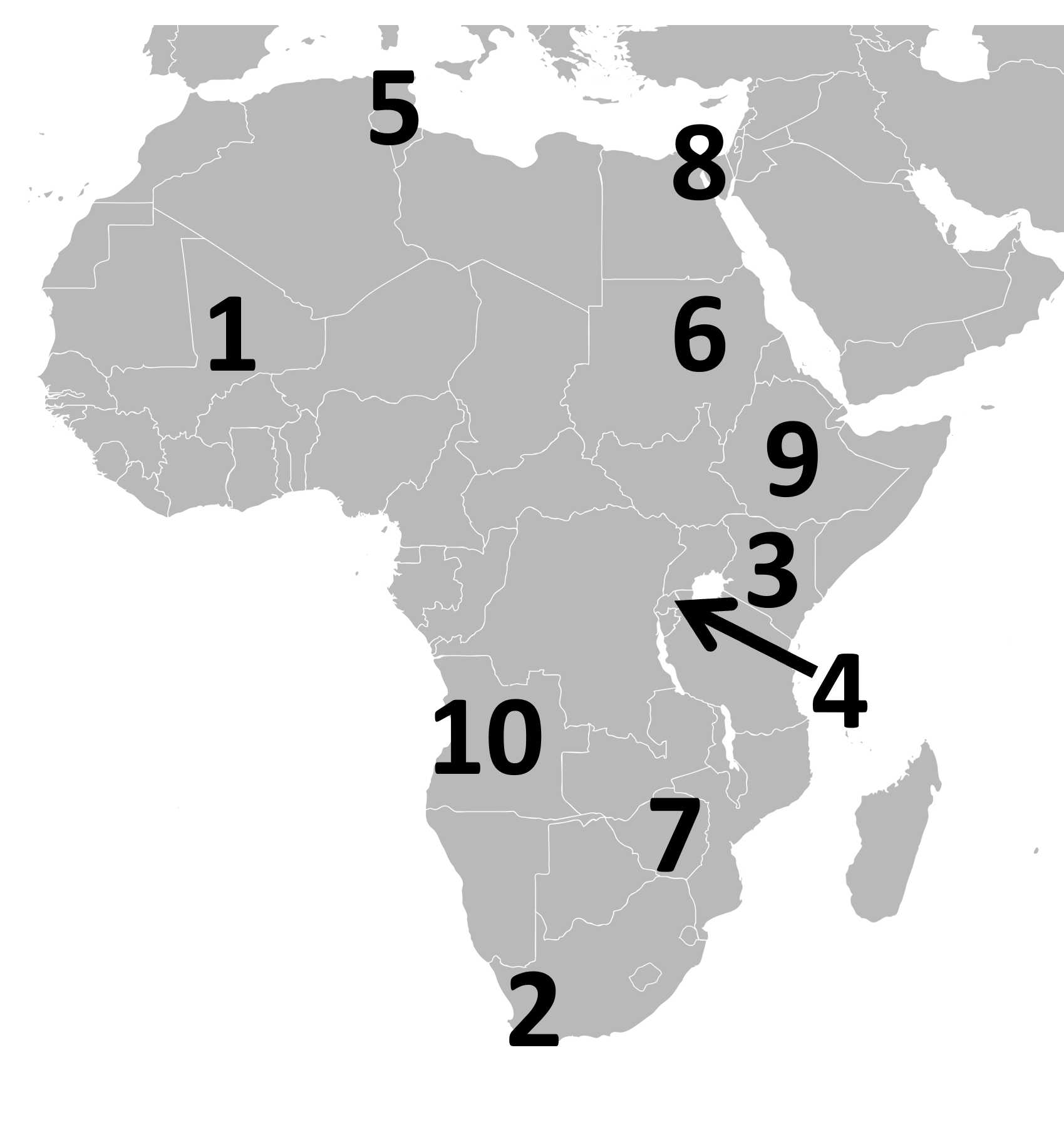Quiz Answer Key and Fun Facts
1. Mansa Musa leaves on his pilgrimage to Mecca (1324)
2. Nelson Mandela is freed from prison (1990)
3. Start of the Mau Mau rebellion (1952)
4. Genocide sees over 500 000 of the Tutsi people killed (1994)
5. Destruction of Carthage by Roman troops (146 BC)
6. Siege of Khartoum (1884/5)
7. Robert Mugabe is ousted as leader (2017)
8. President Nasser nationalises the Suez Canal (1956)
9. Addis Ababa falls to Italian troops (1936)
10. Civil war between the MPLA and UNITA begins (1975)
Source: Author
Stoaty
This quiz was reviewed by FunTrivia editor
ponycargirl before going online.
Any errors found in FunTrivia content are routinely corrected through our feedback system.

